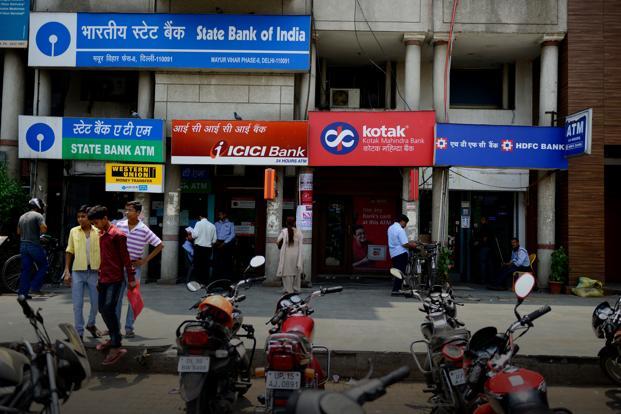In this article, Shreya Mohanty pursuing BBA LLB discusses how to Manage risks in outsourcing of financial services by banks.
Introduction
Recently a new trend has emerged in the operation of banks all over the world. Banks are using the outsourcing method to third parties who may be unrelated or member of the group. The main reasons for outsourcing are:
- Reduces cost
- Access to specialist expertise
- Achieve strategic objectives of the banks
Outsourcing along with these advantages also brings many risks such as:
- Strategic Risk: The outsourcing providers or the third parties may not know the overall strategic goals of the entity for which it is working.
- Reputation Risk: If the third party commits any mistakes or perform poorly then the reputation of the regulated entity will be at risk.
- Compliance Risk: If the service provider do not comply with the privacy law or consumer and prudential laws.
- Operational Risk: This means there may be technology failure on the part of the service provider or they may create any fraud or error which may cause loss to the customers and bank both.
- Strategy Risk: If the bank is relying upon only one company or there is a loss of relevant and important skills within the firms and companies, then this may lead to strategic risk.
Some other risks are counterparty risks, access risks, contractual risks, etc.
What are Outsourcing Activities?
Outsourcing may be defined as a bank’s use of third party (either an affiliated entity within a corporate group or an entity that is external to the corporate group or an entity that is external to the corporate group) to perform activities on a continuing basis that would normally be undertaken by the bank itself, now or in the future.
In simple language, outsourcing is a process in which a company or any bank delegates its powers to a third company or party which manages entire business process of the parent company like finance, accounts, customer support, etc.
Examples of Outsourcing Activities
Tata Business Support Service (TBSS) is a service provider or a third party to the Tata Telecommunications i.e. TATA DOCOMO. Tata Docomo has outsourced its customer support service to TBSS.
P&G has outsourced some Research and Development (R&D) activities which helped the parent company P&G in boosting its innovation productivity by 60% and generated its revenue more than $10 billion. Today more than ½ of the P&G products comes from outsourcing and external collaboration with other companies and firms.
Hindustan Unilever Ltd. In 2005 when planning to merge all his company’s unit into one unit, asked an external/ third party to develop a ERP system as Unilever was not expert in IT solutions.
ACER Company outsourced everything it had like manufacturing.
Recently State Bank of India has published a notification asking for companies for outsourcing its Audit and Accounts. This explains that banking companies have also entered the outsourcing business.
Legal Framework for Outsourcing Activities by Banks
Since many banks have entered into outsourcing, the Reserve Bank of India have released a notification dated November 3, 2006 (https://rbi.org.in/scripts/NotificationUser.aspx?Id=3148&Mode=0) which states various guidelines that has to be followed by banks:
-
- The core management functions like corporate planning, management and control and decision making functions like sanction of loans, compliance with KYC forms, etc. cannot be outsourced by banks.
- RBI will review and check the implementation of these guidelines by the banks and insurance companies.
- Bank Obligations: RBI has made a point that bank shall be liable for any outsourced activities and its Board and Senior Management will be responsible for the outsourced activity. Banks will also be liable for the actions of the external party to whom the bank has outsourced (i.e. the service provider). Banks has the ultimate control on the outsourced activities.
- It is essential for the bank to work for the bank to work within all relevant laws, guidelines, regulations and conditions of approval, licensing or registration.
- Customer Rights: The rights of the customer should not be affected by outsourcing arrangements. Banks have the duty to reveal the third party agreements to the customers and they should also reveal the role of the third party service providers and what are their obligations towards the customers.
- The third parties, whether located in India or outside India, should not interfere in the bank’s management of its activities and RBI’s duty to check over the bank’s functions.
- RBI has also asked the banks, in these guidelines, to create and start a robust grievance redressal mechanism and it should not be compromised in any manner.
- After compliance of these guidelines, banks have to notify the RBI if there is any outsourcing activities or if they are planning to start outsourcing activities.
- If the outsourcing is outside India, then prior permission has to be taken from the RBI.
- Any bank which is planning to outsource its activities should first make an outsourcing policy and then it should be approved by the bank’s Board and Senior Management.
Role of the Board and Senior Management
- They should check whether there is any risk in the outsourcing and they can add any obligations which they think fit for the benefit of the bank.They should review the outsourcing strategies.
- They have right and duty to select the area of function of the bank which has to be outsourced.
- The banks have to create a Redressal of Grievance Machinery where the customers can directly contact the bank if they have any grievances or complaints. The bank, after the creation of the Redressal, has to make publicity of the same through social platforms.
Difference between Outsourcing by Banks and Outsourcing by NBFCs
What is an NBFC?
A Non-Banking Financial Company (NBFC) is a company registered with the Companies Act, 1965/2013 of India, engaged in the business of loans and advances, acquisition of shares, stock, bond sire-purchase, insurance business, or chit business. It does not include any institution whose principal business is that includes agricultural or industrial activity; or the sale, purchase or construction of immovable property.
Difference between a Bank and an NBFC
There are in total 3 differences between a bank and a NBFC. They are: –
- An NBFC does not have the right to accept a demand deposit but a bank can accept the same.
- An NBFC cannot issue cheques to the customers, its main duty is to provide loans to the customers, but a bank can issue cheques.
- Customers of NBFCs do not get the deposit insurance facility of DICGC, but this not the situation in case of banks.
Outsourcing by NBFCs: How is it different from that of the banks?
RBI on November 9, 2017 (https://www.rbi.org.in/Scripts/BS_CircularIndexDisplay.aspx?Id=11160) had issued few Directions for control of Outsourcing of financial services by NBFCs.
The object of RBI issuing such notification is:
- protection of interests of the customers of NBFC
- The RBI is trying to ensure that the service provider provides such quality of work as a NBFC would give.
The directions and guidelines by RBI are:
- As bank is not allowed to outsource core management, similar is in the case of NBFC but the difference is that NBFC is not allowed to outsource the Internal Audits.
- Outsourcing by NBFCs should be of financial services and not of technology related issues and issues not related to financial services.
- RBI has issued some guidelines regarding the duty of the service provider. They are: –
- The service provider should not interfere in the management of the NBFC.
- The service provider shall carry due diligence of its employees.
- The service provider should not mix the documents of different NBFCs and should not disclose it to any other person.
- If the service provider makes any breach of the contract or agreement they have to inform about the same to the NBFC.
- When the outsourcing agreement comes to an end it is the responsibility of the service provider to inform the public that it is no more a service provider to the NBFC.
- NBFC has the duty to give training to the service provider.
- The outsourcing agreement between the NBFC and the third party must be flexible at the option of the NBFC so that NBFC can control on the outsourced activities and it can intervene with appropriate measures for legal and regulatory work.
- The service provider must take prior consent from the NBFC if it wishes to subcontract the outsourced activities.
- The service provider cannot be a party who is related to the parent company. For example a company who is owned by any one of the director or employee of the NBFC.
CLICK HERE
Conclusion
The Outsourcing of activities of financial service by the banks and the NBFCs is almost similar. RBI has given similar guidelines for both but there are few changes for the NBFCs. While outsourcing, banks and NBFCs must follow these guidelines and directions. RBI has also decided to keep a check on these outsourcing activities so that the customers don’t get affected and their confidentiality is properly maintained.
 Serato DJ Crack 2025Serato DJ PRO Crack
Serato DJ Crack 2025Serato DJ PRO Crack










 Allow notifications
Allow notifications


